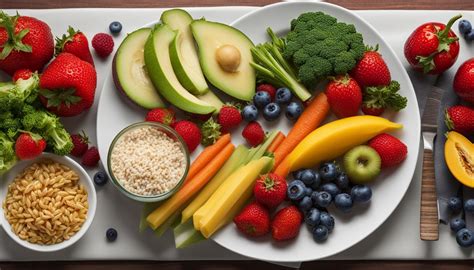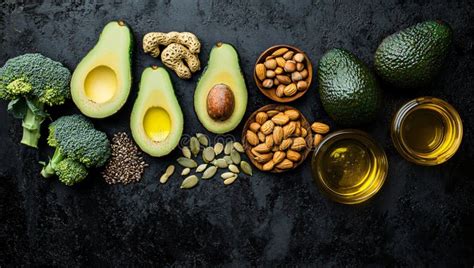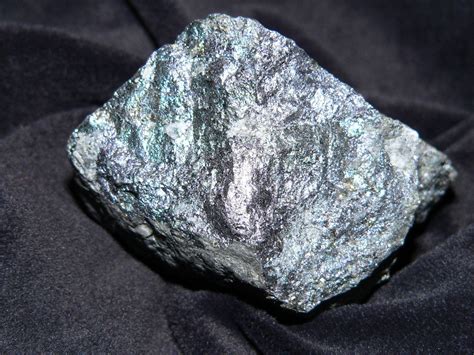How can diet naturally optimize male testosterone for peak performance?

For men, testosterone is more than just a sex hormone; it’s a critical driver of energy, muscle mass, bone density, mood, and overall vitality. While synthetic interventions exist, many are seeking natural, sustainable ways to optimize their hormonal health. The good news? Your plate holds immense power. A carefully curated diet can profoundly influence your body’s ability to produce and regulate testosterone, setting the stage for peak physical and mental performance.
Understanding Testosterone and Dietary Impact
Testosterone levels naturally fluctuate, but a sustained decline can lead to reduced energy, decreased libido, weight gain, and diminished muscle strength. Diet plays a pivotal role in this delicate balance. Specific macronutrients and micronutrients act as building blocks and cofactors for testosterone synthesis, while certain foods can either support or hinder its production and metabolism.

The Macronutrient Foundation: Building Blocks for Success
Healthy Fats: Your Hormonal Allies
Contrary to outdated beliefs, healthy fats are essential for testosterone production. Cholesterol, derived from dietary fats, is a precursor to all steroid hormones, including testosterone. Focus on:
- Monounsaturated Fats: Found in avocados, olive oil, and nuts (almonds, pecans). Studies suggest they can support testosterone levels.
- Polyunsaturated Fats: Omega-3 fatty acids from fatty fish (salmon, mackerel), flaxseeds, and chia seeds can reduce inflammation and improve overall health, indirectly benefiting hormone balance.
- Saturated Fats (in moderation): While excessive intake is ill-advised, some saturated fat from quality sources like grass-fed butter or coconut oil can be beneficial. Balance is key.
Quality Protein: Muscle and Hormone Support
Adequate protein intake is vital not only for muscle repair and growth but also for maintaining a healthy body composition, which indirectly supports testosterone. Choose lean, high-quality sources:
- Grass-fed beef, poultry, and eggs
- Wild-caught fish and seafood
- Legumes and plant-based proteins (lentils, beans, tofu)
Complex Carbohydrates: Energy and Cortisol Management
While often debated, complex carbohydrates are important for energy levels and preventing excessive cortisol (stress hormone) release, which can suppress testosterone. Opt for whole, unprocessed carbs:
- Whole grains (oats, quinoa, brown rice)
- Starchy vegetables (sweet potatoes, squash)
- Fruits and non-starchy vegetables

Micronutrient Powerhouses: Essential Vitamins and Minerals
These unsung heroes are critical cofactors in the complex process of testosterone synthesis and regulation.
Zinc: The Testosterone Mineral
Zinc is indispensable. It plays a direct role in testosterone production and helps prevent its conversion to estrogen. Even mild deficiencies can impact levels. Excellent sources include:
- Oysters (one of the richest sources)
- Red meat (beef, lamb)
- Pumpkin seeds, cashews
- Spinach, mushrooms
Vitamin D: The Sunshine Hormone
Often referred to as a hormone itself, Vitamin D is strongly linked to testosterone levels. Research indicates that optimizing Vitamin D levels can significantly improve testosterone. Get it from:
- Fatty fish (salmon, tuna, mackerel)
- Fortified dairy products and cereals
- Sun exposure (the body’s primary way to produce it)

Magnesium: Free Testosterone Support
Magnesium helps increase the bioavailability of testosterone by reducing its binding to sex hormone-binding globulin (SHBG). Foods rich in magnesium include:
- Spinach and other leafy greens
- Almonds, cashews, peanuts
- Black beans, avocados
Selenium: Antioxidant and Hormone Support
This trace mineral is an antioxidant that supports overall endocrine health. Sources include Brazil nuts, seafood, and organ meats.
B Vitamins: Energy and Metabolism
B vitamins, particularly B6 and B12, are crucial for energy metabolism and can indirectly support hormone health. Find them in whole grains, meat, eggs, and leafy greens.
Foods to Limit or Avoid for Optimal Testosterone
Just as some foods boost testosterone, others can actively suppress it. Be mindful of:
- Highly Processed Foods and Refined Sugars: These lead to insulin resistance, inflammation, and weight gain, all of which negatively impact testosterone.
- Excess Alcohol: Chronic heavy drinking can damage the testes, impair liver function (which metabolizes hormones), and increase estrogen levels.
- Trans Fats and Excessive Unhealthy Saturated Fats: Found in many fried foods and processed snacks, these can promote inflammation and negatively affect hormone balance.
- Soy Products (in excess): While moderate consumption is generally fine, very high intake of soy isoflavones may have estrogenic effects in some individuals, though research is mixed and context-dependent.

Beyond the Plate: Lifestyle Synergies
While diet is paramount, remember that testosterone optimization is a holistic endeavor. Complement your dietary efforts with:
- Regular Strength Training: Lifts weights, resistance exercises.
- Adequate Sleep: Aim for 7-9 hours of quality sleep per night.
- Stress Management: Chronic stress elevates cortisol, which can suppress testosterone.
- Maintaining a Healthy Weight: Excess body fat, particularly visceral fat, can increase aromatization (testosterone converting to estrogen).

Conclusion: Empowering Your Performance Naturally
Optimizing male testosterone naturally through diet is an achievable and highly effective strategy for boosting energy, strength, mood, and overall performance. By focusing on a nutrient-dense diet rich in healthy fats, quality proteins, complex carbohydrates, and essential micronutrients like zinc, Vitamin D, and magnesium, you create an environment where your body can thrive. Combine these dietary changes with a supportive lifestyle, and you’ll be well on your way to unlocking your peak potential and sustaining robust health for years to come.









